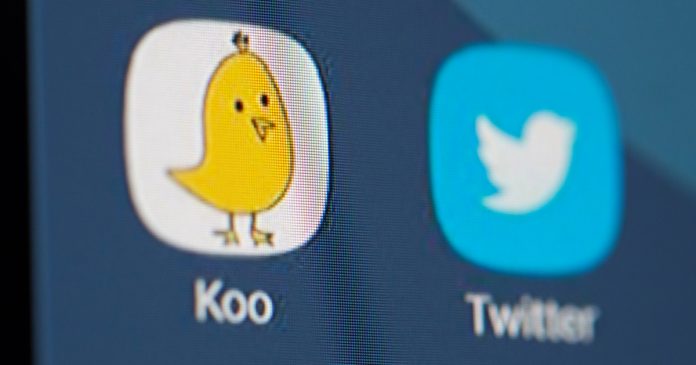[ad_1]
Koo has a fraction of Twitter’s users but surged recently after endorsements by Indian politicians amid a row between the US site and the Indian government.
An Indian alternative to Twitter Inc. is experiencing a surge in popularity after the U.S. microblogging site clashed with the country’s government, a sign of the growing political challenges for social media services.
The Koo app, which lets users send out tweet-like posts in English as well as seven Indian languages, shot to prominence after the San Francisco company got into a weeks-long standoff with the Indian government over blocking certain content. Prominent officials — including Piyush Goyal, the minister of industry and commerce — defected to Koo and urged supporters to follow suit.
That led to a 20-fold explosion in daily users, overwhelming the servers and 10-person engineering team at parent Bombinate Technologies Pvt. Aprameya Radhakrishna, co-founder and chief executive officer, said the Bangalore-based startup’s primary goal is not political at all, but rather to expand the reach of social media to a broader demographic.
“We are building for 100% of India and not just the top 1%,” Radhakrishna said in a phone interview. “You may not be able to follow Elon Musk on Koo but you can connect with Indians who speak and write in a multitude of languages.”
Twitter declined to comment.
Koo, whose logo of a yellow chick bears a resemblance to Twitter’s blue-and-white bird, was founded just a year ago and is a fraction the size of Twitter. It had approximately 2.6 million installs from Indian app stores last year, compared with about 28 million installs for Twitter, according to data from analytics provider Sensor Tower. But from Feb. 6 to Feb. 11, Koo’s installs soared by 901,000, according to the firm’s mobile insights strategist Stephanie Chan.
Twitter’s clash with the Indian government has echoes of its controversial decisions in the U.S., including the banning of Donald Trump after riots in Washington, D.C. In India, the government pressed the social media company to block accounts because of farmer protests over agricultural laws that the government said included misinformation and threats to national security.
Twitter first resisted and then complied with a majority of orders, shutting hundreds of accounts the government had flagged. However, Twitter refused to ban others, citing freedom of expression. Politicians like Goyal have urged followers to go to Koo. The Ministry of Electronics and Information Technology said it will post exclusive updates on the app.
Even the country’s Supreme Court has gotten involved. It has asked the government and Twitter for input on litigation over how to curb toxic content and fake news online. Any ban on Twitter in India could hit user growth in a critical market.
The sudden rise of Koo has sparked privacy concerns over its collection of personal data and security questions because one of its investors is China’s Shunwei Capital. While Koo plans to buy out the Chinese venture firm, Radhakrishna is mostly focused on building the capability to serve more users.
“We are working really really hard to get this to more Indians,” he said.
[ad_2]
Source link











